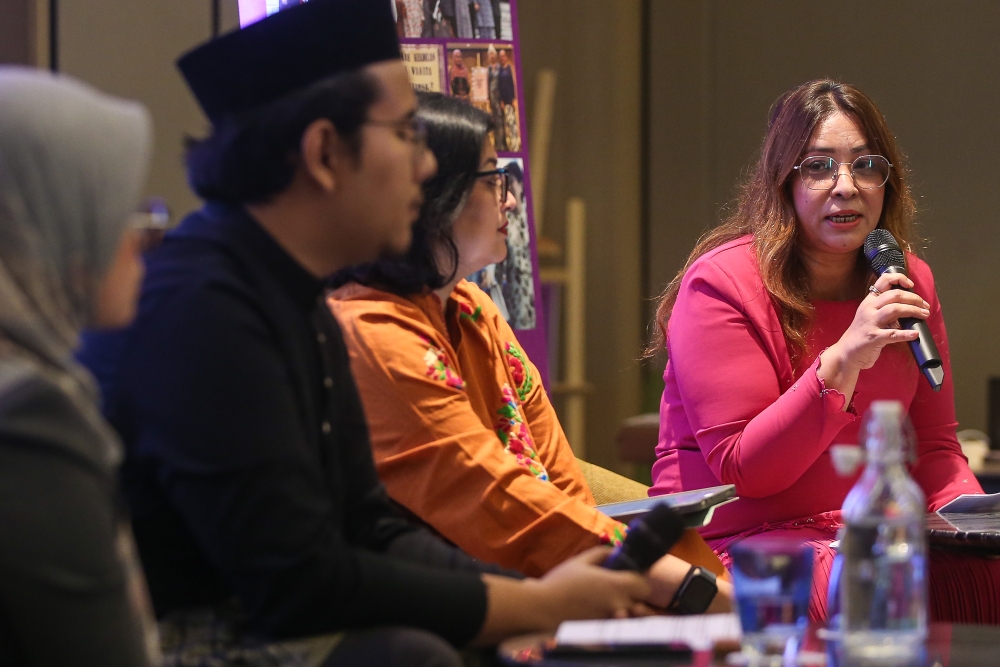KUALA LUMPUR, Sept 9 — Women’s rights group SIS Forum (Malaysia) today called on the government to set up a federal child support fund to provide temporary financial aid for children whose fathers fail to pay maintenance.
With divorced Muslim fathers failing to provide for their children’s financial needs for years, SIS Forum (Malaysia) today stressed the need for an interim child support fund to help affected mothers and children who are still waiting for the father to pay.
SIS Forum’s communications manager Ameena Siddiqi said the government should set up such a federal fund to ensure these children’s well-being, with the money to come from any ministry in the federal government.
At a forum today, she said any ministry could over see the initiative, including the Prime Minister’s Department, adding it could be an allocation from the national budget.
SIS Forum today launched its 2024 report on its free legal clinic Telenisa, where 42 per cent of Telenisa’s 188 clients last year had issues related to child maintenance. The top issues were fathers refusing to pay (47 per cent), unemployed fathers (27 per cent), and non-compliance with court orders to pay child maintenance (nine per cent).
SIS Forum proposed that the Malaysian government set up a federal-level Child Support Agency to manage, monitor and enforce payments from Muslim fathers for child maintenance.
“This agency could implement automatic salary deductions and coordinate legal action in cases of non-compliance,” SIS Forum said in its report, adding that there should also be a centralised court order database.
Ameena said SIS Forum has been pushing for a child support agency since 2005, as research showed that such agencies in Australia and the UK had succeeded in significantly reducing the number of fathers not paying child maintenance after divorces.
She said SIS Forum wants such an agency to be at the federal level, as it will have access to data such as the Inland Revenue Board’s records, compared to a state-level agency.
“So if it is a federal agency, it does not only help Muslim women, it helps non-Muslim women as well. It’s for women in Malaysia whose husbands are not paying. Or even in civil courts if the wife has to pay. So it’s across the board for child support,” she said.

Syarie lawyer Nor Liana Ali (left) speaks at the “Highlights of Issues Throughout” forum at the Holiday Inn Bangsar in Kuala Lumpur on September 9, 2025. — Picture by Yusof Isa
Use SSM, CTOS, CCRIS to get Muslim fathers to pay up
At the same forum, Nor Liana Ali, a lawyer in both the civil courts and Shariah courts, said Muslim fathers do not feel the need to be accountable even after Shariah courts issue orders for them to provide child support.
This makes such court orders just words on a piece of paper that cannot benefit their former wives and children, she said.
In the civil courts, she said banks will immediately know that a case has been filed due to the court’s digital filing system.
She said the Shariah courts still have a manual filing system, which means an ex-wife may have to wait for years before getting a Shariah court order and before being able to get the ex-husband’s employer to make salary deductions for child support.
Nor Liana proposed introducing a centralised digital system, such as by letting the Companies Commission of Malaysia’s (SSM) online company search records state if a company director has failed to pay child maintenance. This is because company directors have to be solvent, prudent, and not blacklisted, she said.
She said credit reporting systems CTOS and CCRIS already immediately record if an individual is involved in any civil court cases, with entities such as banks then asking the individual’s lawyer whether the individual was sued or is the one suing.
She noted that those who had been sued would likely not receive approval for financial dealings, as there is a possibility they would be liable to pay if a court order is made against them.
She suggested that such credit reporting systems also be used to help Muslim women enforce Shariah court orders for their ex-husbands to pay for their children’s financial needs.
Early Shariah court claims secure long-term child support
Nor Liana said many Muslim women clients would ask if it was worth filing for child maintenance in Shariah courts, as it would involve extra costs on top of divorce filing costs and they were worried the ex-husband would not pay even with a court order.
But she said Muslim mothers should pursue child maintenance claims in Shariah courts, as it is their child’s right and it would affect the child’s future claims for child support.
When a child becomes an adult at 18, they will be able to file their own claim in the Shariah court for child support from their father, she said.
But if the mother had never filed for child support at the time of divorce, this adult child will not be able to claim the father’s unpaid child maintenance over the years, as the Shariah court would consider the child’s right to have been waived.
If, for example, a child had not received child support from the age of six until 18, despite the mother having previously obtained a court order against the father, the unpaid amount would accumulate and be claimable by the adult child, she said.
The child can now claim all past unpaid child support in the Shariah court and can even seek orders to freeze the father’s bank account to recover those arrears.
She said there was one such case where an 18-year-old child filed a claim for unpaid child maintenance against his father and his paternal grandfather, as the paternal grandfather is the next person responsible in Islamic law for such care.






